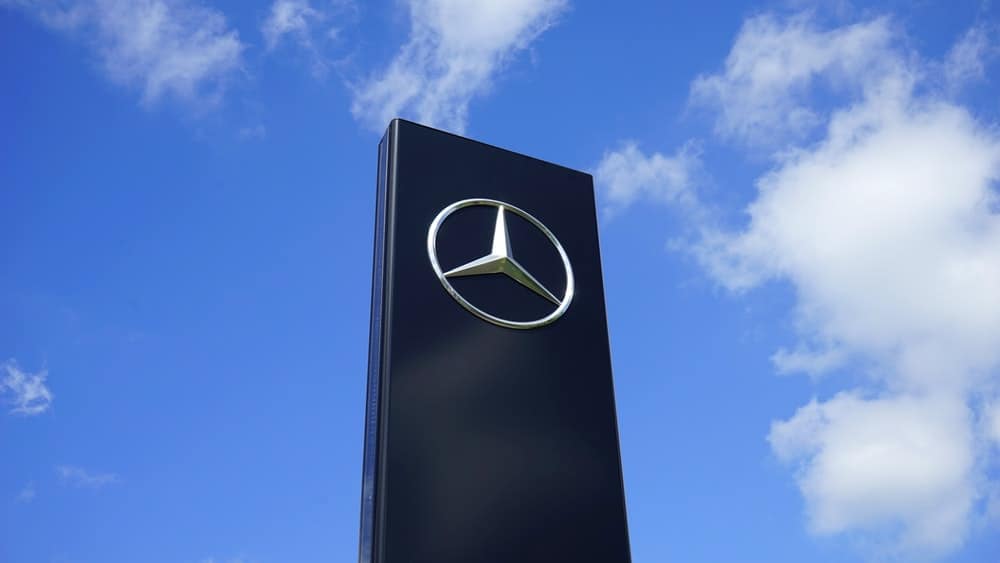Daimler AG, the German auto major, has come under scrutiny over fears of excessive emissions problems, as the Transport Ministry of Germany confirmed that 774,000 Mercedes-Benz vehicles in Europe were found to be running with unauthorized “defeat” devices. Following this, the ministry has instructed Daimler AG to pull 238,000 cars off German roads. In the wake of this, Bild am Sonntag, a local news outlet in Germany, ran an article about Daimler AG identifying software that could stop the flow of AdBlue under certain circumstances on its OM 501 truck engine.
Responding to an email query from FreightWaves about this claim, Daimler AG mentioned that it was in dialogue with the authorities regarding a technical function in connection with the on-board diagnosis (OBD) system. It is the OBD system that ensures adequate addition of the AdBlue reagent, which can eliminate the danger of ammonia emissions while driving under certain conditions that deviate from normal operating conditions – for instance, when biofuels are used.
“As part of our analysis, we also carried out internal measurements in driving operations on the road. During these tests, no unusually high emissions were detected from the vehicles, even after several hundred thousand kilometers,” said Daimler AG in its response.
Then again, that the company had already stated before that it found “isolated situations” during the course of its regulatory tests where V6 heavy-truck engines of the Euro V standard “slightly exceeded the relevant NOx limits.” The engine which is in circulation only in non-European markets such as Middle East and Africa since 2013, would now have its supply stopped globally until the technical issues have been clarified and the engine is considered to not pose a problem.
Albeit a noticeable issue, the Daimler AG excessive emissions scenario cannot be equated to the “Dieselgate” scandal of 2015. In many ways, the widely discussed scandal had come to redefine the credibility of the auto industry in Germany, as Volkswagen admitted to using an illegal software to help its diesel engines cheat emissions tests.
The problem lay in the restrictive use of a chemical additive called AdBlue, which is used to neutralize emissions of nitrogen oxide – a gas which is a primary source of vehicular air pollution. The reagent AdBlue came in a tank that was much smaller than desired, which meant that customers who bought the vehicle would have to frequent the service stations to fill up the reagent
To circumvent the problem, engineers at Volkswagen regulated the flow of AdBlue to prolong it at its dying stages, thus making sure the supply would last much longer than initially intended. This meant that nitrogen oxide exhaust levels exceeded the ceiling threshold, leading to the scandal that ensued.
Rupert Stadler, the CEO of Audi, the luxury car manufacturing arm of Volkswagen, was arrested recently on charges of suppressing evidence relating to the emissions test scandal. When the scandal broke out, Audi recalled its A6 and A7 models en masse while alluding to emissions irregularities as the reason for the recall. Since the Dieselgate scandal, Volkswagen has also settled in the U.S. court to the tune of $15 billion, which the company considers to be a significant milestone in its road to atonement.
Though Daimler AG’s problems have not reached the magnitude of Volkswagen or Audi, their emissions issue also stems from the reduced flow of the AdBlue reagent under non-standard operating conditions. Daimler has stated that this was a problem caused by the software controlling the flow of AdBlue, which the company is now investigating. Daimler AG was also at the receiving end of a lawsuit, being sued this June by a shareholder who alleged the auto manufacturer to have misled investors by not revealing the extent of its diesel emissions problems that seemed to cut parallels with the Volkswagen episode.
After extensive talks with the German Transport Minister last month, Daimler AG CEO Dieter Zetsche averted a situation where the company could have shelled out expensive fines over the AdBlue incident. Following the meeting, the company has decided to upgrade its diesel emissions software in the C-class sedan, GLC SUV, and Vito van models.
Stay up-to-date with the latest commentary and insights on FreightTech and the impact to the markets by subscribing.










